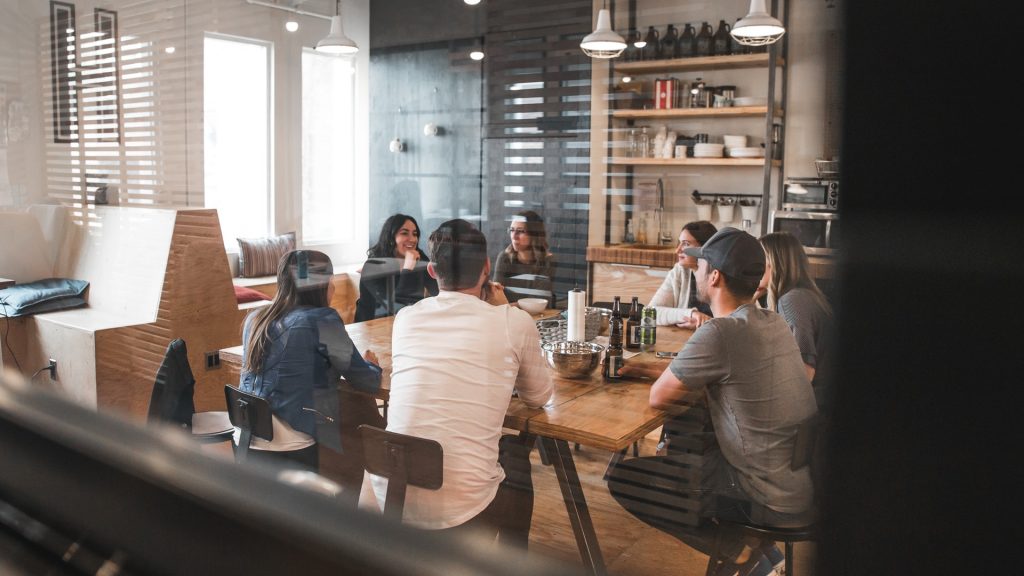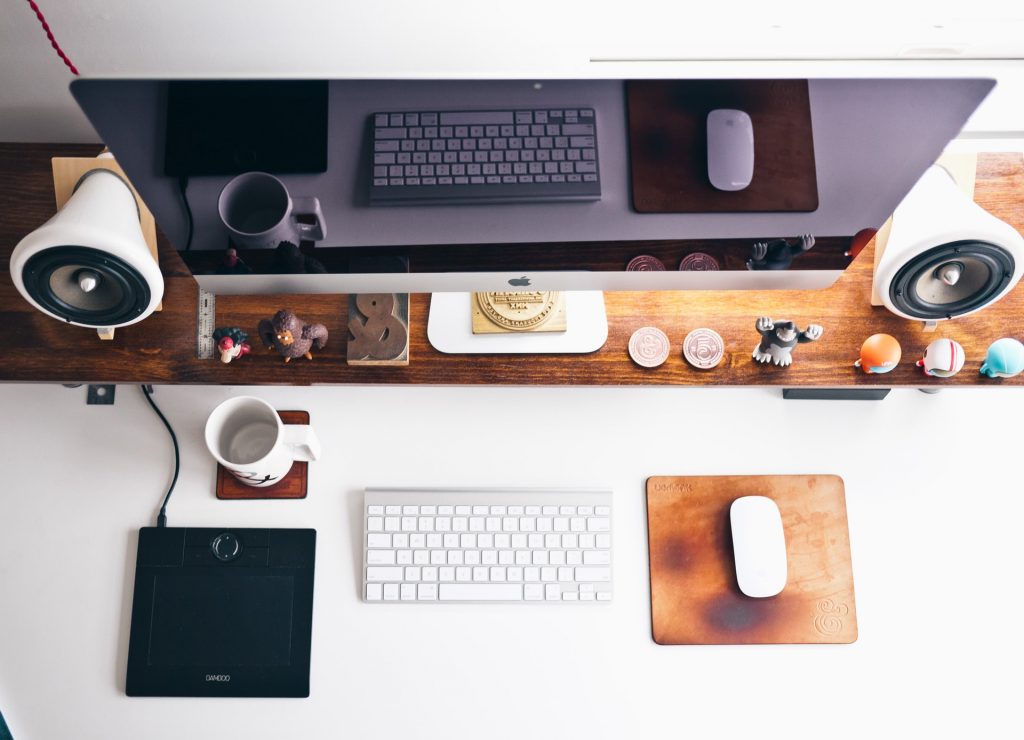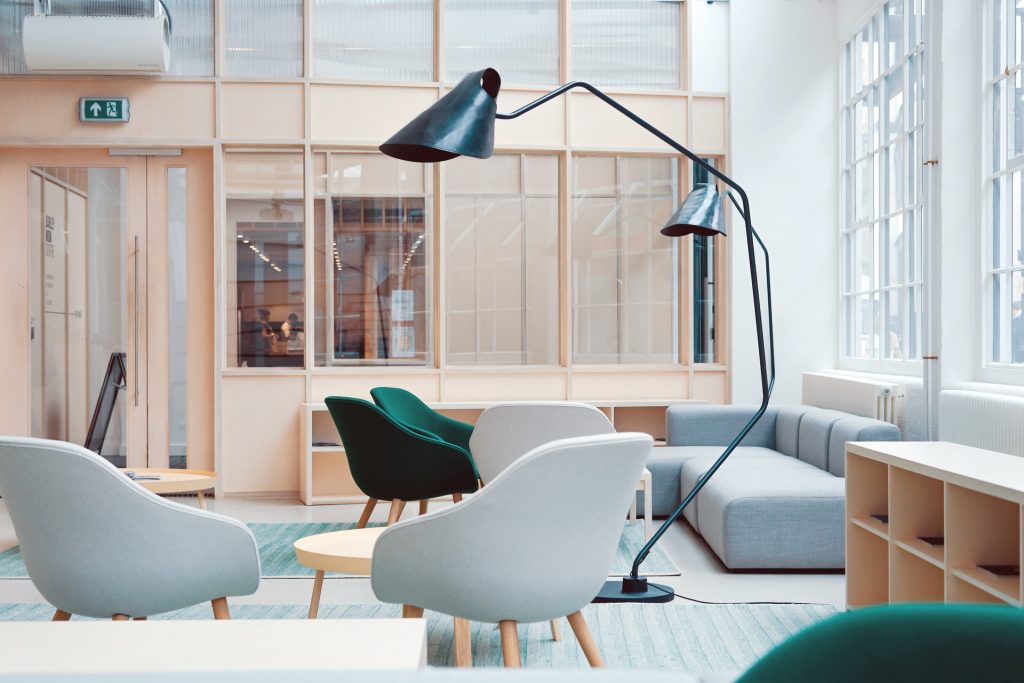The weekly economy and business magazine TREND has interviewed me about the future of offices after the COVID-19 pandemic. I am sharing it in English with their kind permission.

Interviewer: Jozef Ryník
Interviewed: Michal Matlon
Link to article in Slovak: https://www.trend.sk/trend-archiv/vyuzivanie-kancelarii-bude-karantene-flexibilnejsie
The experience with remote work gives people and companies the courage to make changes in offices and work processes. Organizations will have to be more flexible if they want to attract people back into the offices, claims Michal Matlon, workplace psychologist, in an interview for TREND.
What effect on the worker can a three month quarantine and home office have? Will it be difficult for them to get back to work?
It depends on the conditions they have at home, as well as the personality of the worker. For many people, home office won’t be suitable, since they have children or a partner at home who distract them. Many don’t have a necessary equipment – a comfortable chair, an ergonomic desk or a large enough computer monitor. Some people also need a clearly separated space for work and so they will see the spillage of work into their home as undesired. These people will look forward to returning to the office.
On the other hand, people who have good conditions at home and have a weaker need for contact with people, can get used to this kind of work. They will desire to work like this at least partially also in the future. Another factor is the quality of the office itself. If it’s not designed well and people are distracted too often, for example, the return to the office will be more difficult.
Won’t the social contact with colleagues outbalance focus in the decision whether to return?
A common characteristic of people is that they need contact with others. Some to greater, some to lesser extent. But loneliness is a common denominator of such forced quarantine, both for introverts and extraverts. It’s important to have control over your interactions – to be able to set up your own schedule of solitude and socializing.
Will the employees require to be able to work from home more?
Certainly. This natural experiment has shown that work from home is possible and in many cases attractive. People who have experienced the benefits of better focus, lower mental exhaustion and a greater control over their day, will expect to have this possibility. Even in many companies where this was not possible before, it was proven that work from home is possible.
Home Office – Limitation Or Advantage?
Won’t managers be afraid that they will lose control over people?
Today, managers need to use different ways of managing a team than direct supervision. It’s important that we don’t just move this surveillance into the digital environment, like when companies monitor the computer activity of their employees. It would be the same outdated way of management, just in a different form. Thanks to current changes, we’ll need to start implementing results based management, not monitoring the work process itself.
Isn’t an in-person meeting or a simple discussion more stimulating, when it comes to creating new ideas, than an online interaction?
It depends on what is the goal of the meeting. If we want to create, brainstorm, the research has shown that the most effective way is a combination of individual and group creativity. But in the online environment, there is an effective method too. The participants contribute ideas anonymously into a live chat. Others can react to them, but are not under pressure. We are most creative when we are relaxed. On the other hand, if we want to discuss complex topics openly, such as future strategy or transforming company culture, personal contact is priceless.

Can companies make work from home mandatory or should they treat it more as a benefit?
The biggest benefit of the current pandemic is the spread of remote working. Companies should use it as a way to use space more efficiently. But they can’t force employees into it. Not everyone has the conditions for work outside the office. The organizations have to offer this as a voluntary option and help people to use it. Some companies, like Basecamp or Google, give their employees a thousand dollars to equip their home office. It’s also important to guide people in creating their own schedule.
The Open Plan Change
How will offices change when there is fewer people in them? Will open plan be still desirable?
The open plan office has gained a bad reputation, because they are often badly designed and they are used for the wrong purposes. For a team which needs to coordinate intensely, like a crisis response team, or a routine-work department, a well-designed open plan can be a good environment. It’s important that companies use this opportunity and start applying already existing principles of people-focused design. And this can have a partial effect of decline of the open plan office.
How will this change look like?
Our everyday work consists of many individual and group activities. For each of them, we need a different space which supports them. We need a different space for focus, different for a conference call, project work or creative work. It’s good when people can pick a working environment that suits them. This doesn’t mean though, that teams shouldn’t have their own space. Groups function better when they have their own, private territory. That’s why we need to approach the design of an office individually, to tailor the space to the departments. The companies should think about the needs of their employees. They should think about how to give them space which supports their work. Especially if they want to attract them back into the office.
Is there going to be more shared spaces in offices?
In the short term, many people can avoid shared spaces for hygienic reasons. When cleaned regularly, they are not dirtier than owned work spaces, but people usually accept their own germs better than the feeling that other people sat at the same desk before. In the long term, shared spaces can grow to increase the flexibility of the office. When I need to focus and I can’t do that at home, I can come to the office and work in a bookable closed office. When I’m planning a two-week project work, we can use a special project room. If I just need to sort e-mails, I can sit in a café space.
On the other hand, if your work consists of a constant close cooperation, it makes sense to have an owned team space, where everyone has their desk. That’s why every office has to be tailor-made, or at least be very customizable. Every company is going to have a different ratio of shared and owned desks, different types of spaces and their configurations.
Experts claim that there are going to be fewer spaces for a specific person and more spaces for meetings to support creativity. Won’t this affect focus?
If a company wants to use space efficiently, so it’s not empty, they might use sharing of spaces. But we should ask – what spaces? Demand for a regular open plan will decrease, because they are suited only for a very narrow category of work – unfocused work. That’s why I think it won’t be just about increasing space for meetings. It will be more about adding specialized spaces – for intense focus, creative collaboration, project work, socializing and others.
Isn’t it a myth that you can support creativity through offices?
Today, we often automatically think about creativity as collaboration. But this is one of the reasons we don’t innovate enough. People are best at creative tasks when they are alone. Of course, there has to be a data-gathering phase before – asking users, for example. Collaboration starts when the ideas created need to be presented, improves, evaluated and applied. Creativity always has to be a combination of focus and collaboration.
In Czech Vodafone offices, the employees have to make a desk reservation in the open plan through a mobile app. This is to maintain a two meter distance between people. Can this practice stay even after the hygienic measures are not needed anymore?
It’s one of the possible solutions, but it’s better suited for specialized spaces – closed offices for focus and collaboration spaces. When you know that on a certain day you need to focus, you will plan a visit to the office, where such focus room will be waiting for you. The company shouldn’t make all such spaces bookable though. It’s important that people can use them spontaneously, whenever they need them. It’s always better to think about how to solve problems through design and culture of behavior first, before using technologies which add complexity and costs.
Office Flexibility
Will companies use office space more flexibly?
The most effective space is one which supports the work of employees. For a long time, the biggest question was how to save on space – how to fit more people on a smaller surface. But density of offices has increased to such point that many of them stopped meeting basic psychological needs. People need enough personal space and air to breathe.
So it’s not worth saving money on space?
Today, some companies start to understand that savings are simple to spot in the accounting, but in reality, they can create many hidden externalities. Those can lead to loses in the long term. People will be sick more often, more tired, in greater stress, less productive and will leave the company sooner.

Will offices be more flexible?
There are many flexible solutions that allow to quickly change the use of a room. But you need to choose such solutions that don’t compromise on ergonomics. A movable panel can serve as a flexible wall, but it might not offer what we really expect from a wall – full visual and acoustic privacy.
Do glass booths in offices have a purpose?
Yes, glass phone booths are a good solution to temporarily contain colleagues who would otherwise distract others. Other people’s conversations are one of the most common complaints of employees and psychologically the most distracting element. Potentially more efficient and cheaper solution is to build these rooms already into the design of the office. This way, you can achieve a higher level of comfort or air quality. Premade solutions are often very expensive.
What is the future of air conditioning and elevators in office buildings?
Air conditioning is an important element of health protection. A high-quality HVAC not only maintains a desired temperature, but also takes care of an optimal humidity and supply of fresh air. Air conditioning can have a bad reputation because of people’s experience with badly designed and unmaintained systems.
When it comes to elevators, we can expect an increase in demand of touchless solutions. But also, as a part of active design (support of physical activity in the space – note of TREND), more buildings are designed with accessible, open and pleasant staircases. Those are used by people on the lower floors.
